Stone Age to Iron Age school trips and workshops
learn about life in prehistoric times
Understanding the evolution from nomadic hunter-gatherers to settled farming communities is a key concept when learning about prehistory. Developing chronological awareness through artefacts and site visits helps connect students to their local heritage. Explore the prehistoric period with one of the school trips or workshops below.
Stone Age
Workshops about the Stone Age can provide a captivating and immersive learning experience for primary school students in both Key Stage 1 and Key Stage 2. These interactive sessions transport children back in time, allowing them to vividly imagine the daily lives and challenges faced by our prehistoric ancestors.
Through hands-on activities and engaging storytelling, at sites like Flag Fenn in Cambridgeshire and Star Carr in Yorkshire, students can learn about the remarkable changes in technology and culture that characterised the Paleolithic, Mesolithic, and Neolithic periods.
Bronze Age
Workshops covering the Bronze Age period of prehistory delve into the daily lives of bronze age peoples, the structures they lived in, the materials they used for clothing and the roles of men, women and children.
Iron Age
The Iron Age is the closest to modern times and survives perhaps most obviously in the form or hill forts. In addition to archaeological sites, Iron Age school trips can incorporate visits to local museums, where students can view impressive displays of pottery, jewelry, and other cultural treasures.
Although it is true that the further back in time we go, the less information we have to read about and the fewer examples we have to look at, there is still a wealth of information available to school children, and to help teachers add value to their prehistory topics.
Take a look below to secure a Stone Age school trip, bag a Bronze Age school trip or instigate an Iron Age School Trip. Looking for dinosaurs?
Find a school trip or workshop for the following Prehistory topics: Bronze Age, Iron Age, Stone Age, and more.
Prehistory news
28 March 2025"The Future of Prehistory" Conference
The Prehistoric Society is hosting "The Future of Prehistory" conference in 2025. This event will delve into new methodologies and engagement strategies, offering fresh insights for educational programs. [1]
Flag Fen Archaeology Park Initiatives
Flag Fen continues to add to its amazing educational offerings with programs like "Exploring Prehistoric Life," so you can immerse your students in hands-on prehistoric experiences. Additionally, the "I-SPY-A-SAURUS" event will provide interactive activities centered around prehistoric life. [2]
Murton Park's Prehistoric Activity Days offer some fantastic immersive Prehistoric Activity Days, allowing students to experience reconstructed prehistoric environments. These sessions provide hands-on learning about early human societies, their tools, and daily life.
There have been some new prehistoric archaeological discoveries in Cambridge, where local schools got to help with a massive archeological development. Recent excavations at Aragon and Sackville Close in Cambridge unearthed significant prehistoric artifacts such as fossilized dinosaur vertebra. Local schools have been lucky enough to be involved in these discoveries, offering students unique firsthand archaeological experiences. [3]

Lochranza Centre CIC
 School Trip Scotland
School Trip Scotland Subjects: Accommodation Only, Archaeology, Bushcraft, Explorers, Fieldstudies, Geography, Environmental Geography, Human Geography, Physical Geography, Geology, Celts, Industrial, Local History, Prehistory, Twentieth Century, Victorian, Vikings, Physical Education, Science, Biology, Seaside, Team Building, Watersports, Wildlife, History, Forest School
Subjects: Accommodation Only, Archaeology, Bushcraft, Explorers, Fieldstudies, Geography, Environmental Geography, Human Geography, Physical Geography, Geology, Celts, Industrial, Local History, Prehistory, Twentieth Century, Victorian, Vikings, Physical Education, Science, Biology, Seaside, Team Building, Watersports, Wildlife, History, Forest School
Located on the beautiful Isle of Arran, the Lochranza Centre CIC is an Outdoor Education & Activities Centre specialising in Geography, Geology, & Environmental Science field studies. We've delivered fun, safe, & adventurous school trips for 40 years
Lochranza Centre CIC
Where are you and what would you like to do?
Scroll down to see some suggestions, or use these filters to refine your interests
Prehistory school trips and workshops
Please use the search filters above to view our full range of Prehistory school trips relevant to you.

Unforgettable Day Visits at The Hive
London & South EastStone age to the Iron Age Surviving the Stone Age - Enter the Stone Age in the forest; finding wild food, collecting clay to make a thumb pot, do some cave painting using natural pigments and build your own shelter. Curriculum links: History changes in Britain from the Stone Age to the Iron Age.
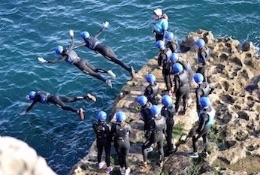
Cumulus Outdoors Curriculum Day Trips
South WestLearn about the Isle of Purbeck, how it has changed overtime and about the people who have inhabited it. Visit locations showing evidence of prehistory inhabitation, from stone rings to barrows/tumuli, you will see how people lived in the Isle of Purbeck

Unforgettable Residentials at The Hive
London & South EastStone age to the Iron Age Surviving the Stone Age - Enter the Stone Age in the forest; finding wild food, collecting clay to make a thumb pot, do some cave painting using natural pigments and build your own shelter. Curriculum links: History changes in Britain from the Stone Age to the Iron Age.

Cumulus Outdoors Tented Village - Corfe Castle
South WestLearn about the Isle of Purbeck, how it has changed overtime and about the people who have inhabited it.Visit locations showing evidence of prehistory inhabitation, from stone rings to barrows/tumuli, you will see how people lived in the Isle of Purbeck
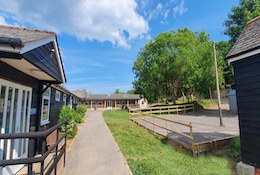
Cumulus Outdoors Residential Centre - Swanage
South WestLearn about the Isle of Purbeck, how it has changed overtime and about the people who have inhabited it. Visit locations showing evidence of prehistory inhabitation, from stone rings to barrows/tumuli, you will see how people lived in the Isle of Purbeck
New Primitive Stone Age YouTube Channel
The Stone Age Company is thrilled to announce the launch of our brand-new YouTube channel, Primitive Stone Age
continue reading...
Outback2basics - The Stone Age Company
Outback2basics will be rebranding in March 2023 and we will be called The Stone Age Company
continue reading...
Why Choose Our Prehistory Experiences?
We feature a wide range of sites and experiences from experts like English Heritage, the Museum of Liverpool and Portals to the Past, whose learning experiences are put together to inspire and educate about the subject. Led by expert guides, your children can explore ancient monuments or try hands-on activities like flint knapping.
The period known as Prehistory is generally seen as the time before written records were made and kept. For us here in the UK, this means the people who inhabited our islands before the Romans arrived: The people of the Iron Age; The Bronze Age; and the Stone Age.
Ask most children about British History and the first people they can tell you about in any detail are the Romans. The National Curriculum is now taking aim at this knowledge gap by encouraging teachers to focus on the people who lived here before the Roman invasion. Take a prehistory school trip or bring a prehistory school workshop into your classroom.
Stone Age School Trips
A great way to help your class to understand the various aspects of prehistory is to take advantage of the venues and outreach programmes available. Children develop a better understanding of a subject if they can see and touch it. To aid this, museums can offer helpful visual stories alongside examples of the Paleolithic, Mesolithic and Neolithic stone tools of the early hunter gatherers who made the UK, as it was, their home.
Bronze Age School Visits
By around 2,500 BC inhabitants were moving into what we call the Bronze Age. This was a time where tools started to be made out of metals rather than stone and when our famous monuments such as Stonehenge were constructed, along with barrows and cairns. While day to day life is difficult to study, prehistory school trips can look at migration patterns and trade.
Iron Age for Schools
The Iron Age began around 800 BC and lasted until the Roman Conquest. The use of iron in tools and weapons is the main distinguishing feather of this time period, which also saw the spread of Celtic languages and increased interaction with continental Europe.
The UK is covered in prehistoric sites, many of which are maintained by English Heritage. These landmarks provide students with a very tangible connection to prehistoric landscapes and settlements from the distant past. Notable English Heritage sites you can visit include Stonehenge: A world-famous Neolithic monument in Wiltshire, known for its mysterious stone circle and astronomical significance. Avebury Stone Circle: One of the largest prehistoric stone circles in Europe, located in Wiltshire, showcasing communal and ceremonial life. Grimes Graves: A unique Neolithic flint mine in Norfolk, offering insights into early mining techniques and tool-making. Without trying to sound like a cliche, sites like these really do make the UK a living classroom for studying prehistory, bringing ancient history to life.



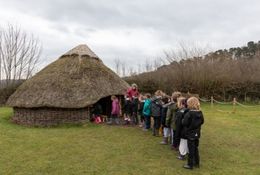



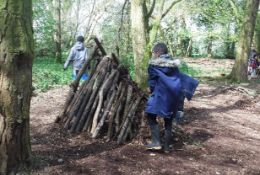

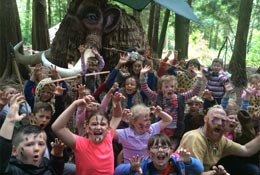






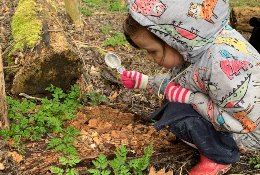

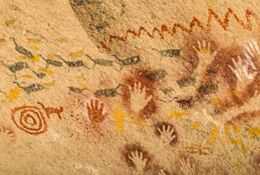













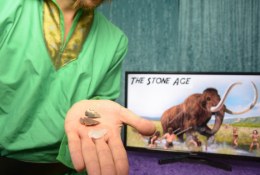




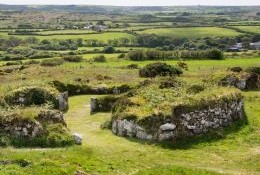
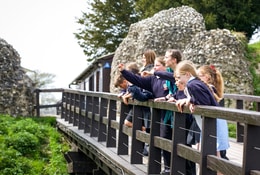


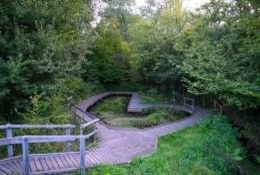
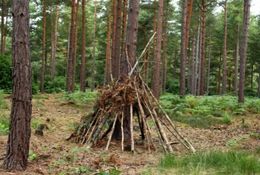
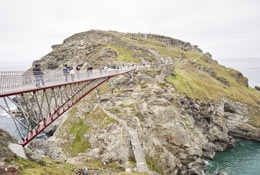

 Subscribe
Subscribe